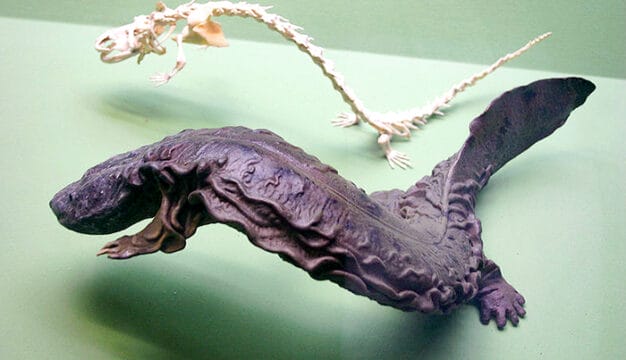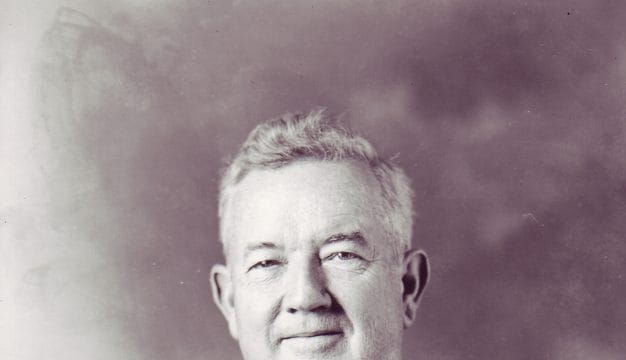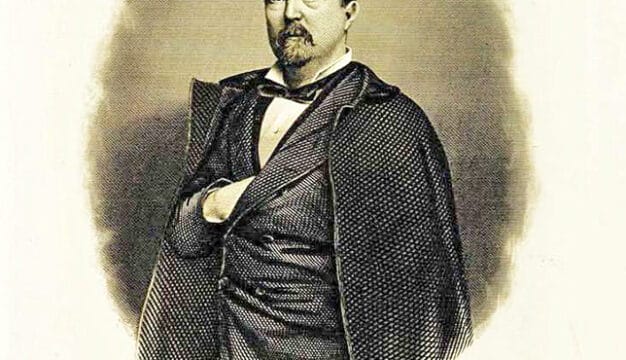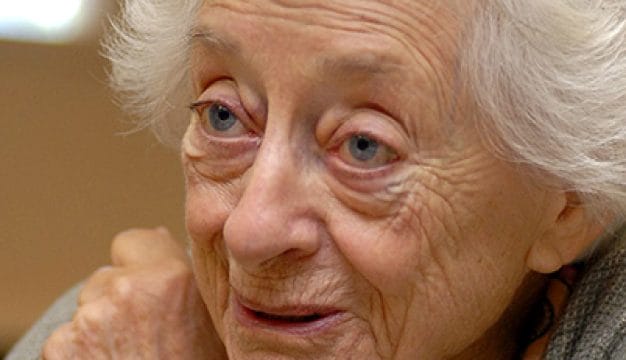Oakwood University
Oakwood University is a four-year historically black institution located in Huntsville, Madison County. Situated on 1,185 acres of land, Oakwood was founded by the Seventh-Day Adventist Church as a vocational school and has evolved into a graduate-degree granting institution. Institutional lore suggests that the institution was named after a group of oak trees found on the campus. Famed rock and roll pioneer Richard “Little Richard” Penniman was an alumnus and was interred on the campus after his death in May 2020.
History
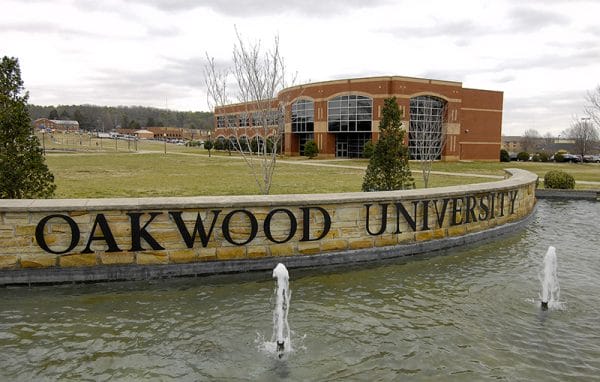 Oakwood University
Founded in 1896 with an investment of $6,700, the Oakwood Industrial School was established by the Seventh-day Adventist Church to educate African Americans in the southern United States. Established on the former Beasley plantation, the school was largely the vision of Ellen White of the Southern Missionary Society and Charles M. Kinny, the first Black ordained minister in the Adventist Church. White championed the evangelization and education of African Americans in the South at the General Conference of Seventh-Day Adventists with support from others, including Adventist missionaries and publishers Edson White and Will Palmer. The persistent efforts of these individuals between 1891 and 1896 led to the eventual purchase of the 360-acre site and the development of the school. When the Oakwood Industrial School first opened, 16 students enrolled in a curriculum that included instruction in a variety of trades and skills. There were two curricular tracks, one for evangelists and related careers, the other for carpenters, teachers, farmers, masons, nurses, and cooks. By 1904, the institution had been renamed the Oakwood Manual Training School and three years later obtained a charter to grant degrees, which at the time were equivalent to a high school diploma. In 1909, Oakwood graduated its first class of five students. In 1917, the school offered its first postsecondary instruction and was renamed the Oakwood Junior College with an enrollment of 100 students. With the change in institution status to a junior college, enrollment by African Americans from the North increased noticeably. Long-time educator James I. Beardsley, a white man, was elected its first president in that same year. In 1918, the institution expanded its landholding by threefold. By 1927, Oakwood enrolled 200 students.
Oakwood University
Founded in 1896 with an investment of $6,700, the Oakwood Industrial School was established by the Seventh-day Adventist Church to educate African Americans in the southern United States. Established on the former Beasley plantation, the school was largely the vision of Ellen White of the Southern Missionary Society and Charles M. Kinny, the first Black ordained minister in the Adventist Church. White championed the evangelization and education of African Americans in the South at the General Conference of Seventh-Day Adventists with support from others, including Adventist missionaries and publishers Edson White and Will Palmer. The persistent efforts of these individuals between 1891 and 1896 led to the eventual purchase of the 360-acre site and the development of the school. When the Oakwood Industrial School first opened, 16 students enrolled in a curriculum that included instruction in a variety of trades and skills. There were two curricular tracks, one for evangelists and related careers, the other for carpenters, teachers, farmers, masons, nurses, and cooks. By 1904, the institution had been renamed the Oakwood Manual Training School and three years later obtained a charter to grant degrees, which at the time were equivalent to a high school diploma. In 1909, Oakwood graduated its first class of five students. In 1917, the school offered its first postsecondary instruction and was renamed the Oakwood Junior College with an enrollment of 100 students. With the change in institution status to a junior college, enrollment by African Americans from the North increased noticeably. Long-time educator James I. Beardsley, a white man, was elected its first president in that same year. In 1918, the institution expanded its landholding by threefold. By 1927, Oakwood enrolled 200 students.
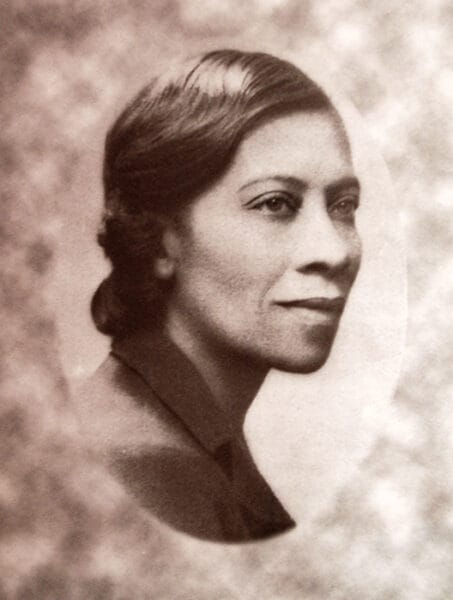 Eva Beatrice Dykes
Between the early 1920s and 1930s, student unrest mounted as a result of long workdays and students’ inability to focus on academic endeavors, as well as backlash against white leadership. This unrest led to a riot in 1931 and the eventual appointment of Oakwood’s first African American president, James L. Moran, a New York native who had founded educational academies for Black students there.
Eva Beatrice Dykes
Between the early 1920s and 1930s, student unrest mounted as a result of long workdays and students’ inability to focus on academic endeavors, as well as backlash against white leadership. This unrest led to a riot in 1931 and the eventual appointment of Oakwood’s first African American president, James L. Moran, a New York native who had founded educational academies for Black students there.
By 1944, the institution’s leaders had changed its name to Oakwood College. The first bachelor’s degrees were awarded the following year, and initial Southern Association of Colleges and Schools accreditation was conferred in 1958. The first class graduating with a four-year degree was comprised of nine students in 1945. In 1952, Mary Inez Booth, chair of the Music Department, established an outreach and education program to incarcerated people in the Madison County Jail that continues to the present.
During the civil rights movement, Oakwood College remained largely outside the movement. A 1962 visit by Martin Luther King Jr., however, inspired an integrated commitment to civil rights by Oakwood students, faculty, staff, and other Huntsville community members. Like many other HBCUs at the time, Oakwood took a relatively cautious stance on civil rights by actively discouraging faculty freedoms and reinforcing the period’s socially circumscribed role for women. As a result, Oakwood student participation in protests, sit-ins, and other active forms of resistance was almost exclusively male. Oakwood students were not necessarily prominent in the larger national civil rights movement, but they did have space to discuss and debate social justice issues on campus and in Huntsville.
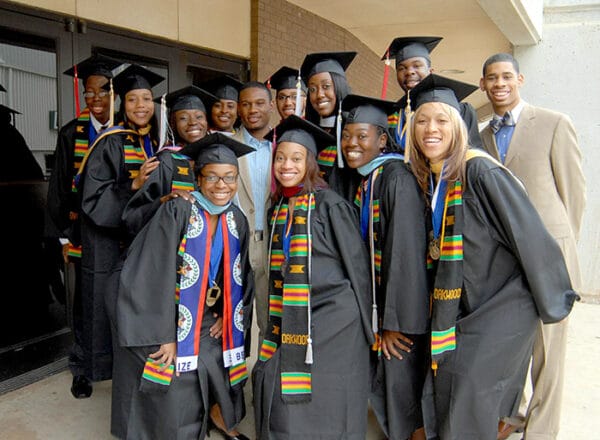 Oakwood Graduates
Oakwood graduated 124 students in 1973 and then 200 in 1982. In 2007, the institution was granted approval to confer a graduate degree in religion and change its name to Oakwood University by the institution’s board of trustees and constituents. In 2008, Oakwood University won the Honda Campus All-Star Challenge, an academic competition among historically black colleges and universities that includes a $50,000 grant. In the competition, established in 1989 by Honda Motor Company, teams comprised of four students answer trivia questions related to African American history and culture, science, the arts, world history, and popular culture.
Oakwood Graduates
Oakwood graduated 124 students in 1973 and then 200 in 1982. In 2007, the institution was granted approval to confer a graduate degree in religion and change its name to Oakwood University by the institution’s board of trustees and constituents. In 2008, Oakwood University won the Honda Campus All-Star Challenge, an academic competition among historically black colleges and universities that includes a $50,000 grant. In the competition, established in 1989 by Honda Motor Company, teams comprised of four students answer trivia questions related to African American history and culture, science, the arts, world history, and popular culture.
The institution currently grants degrees in five college: Arts and Sciences, Business and Information Systems, Education and Social Sciences, Nursing and Health Professions, and Theology. Student enrollment was 1,865 in 2008, of which approximately 60 percent were female and 40 percent were male. Students come from at least 42 states and approximately 30 countries. In 2016, the university was accredited by the Adventist Accrediting Association. In 2018, the U.S. Senate officially recognized Oakwood as a leading source of Black medical school applicants in the nation.
Traditions
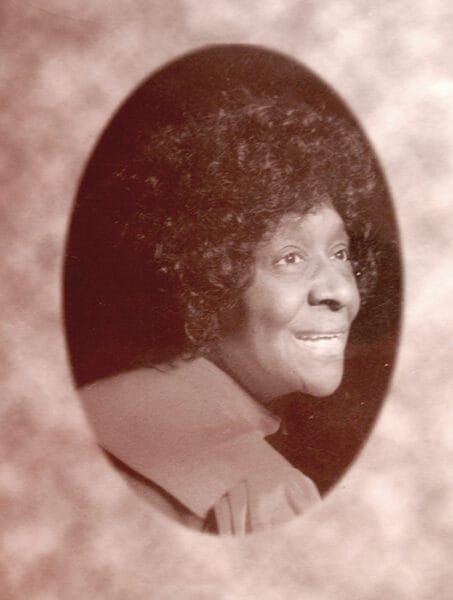 Alma Montgomery Blackmon
Oakwood University holds weekly church services on campus. The institution has multiple musical groups, including numerous gospel choirs and a traveling choir, the Aeolians, which was established in the mid-1940s and has performed at the White House and around the world. Oakwood University fields athletic teams in football and basketball at the varsity level, in addition to a variety of intramural sports. The nickname for Oakwood University teams is the Ambassadors. In March 2008, during its first year in a new league, Oakwood University’s men’s basketball team won the National Championship for the United States Collegiate Athletic Association, a consortium for athletics at small colleges.
Alma Montgomery Blackmon
Oakwood University holds weekly church services on campus. The institution has multiple musical groups, including numerous gospel choirs and a traveling choir, the Aeolians, which was established in the mid-1940s and has performed at the White House and around the world. Oakwood University fields athletic teams in football and basketball at the varsity level, in addition to a variety of intramural sports. The nickname for Oakwood University teams is the Ambassadors. In March 2008, during its first year in a new league, Oakwood University’s men’s basketball team won the National Championship for the United States Collegiate Athletic Association, a consortium for athletics at small colleges.
Oakwood University also hosts a private K-12 school for about 300 children, most of whom live in the local African American community. This school, the Oakwood Adventist Academy, is used by Oakwood’s Department of Education as the College Preparatory Division and Laboratory School for by both university students and faculty members.
Additional Resources
Further Reading
- Fisher, Holly. “Oakwood College Students’ Quest for Social Justice Before and During the Civil Rights Era.” Journal of African American History 88 (Winter 2003): 110-25.
